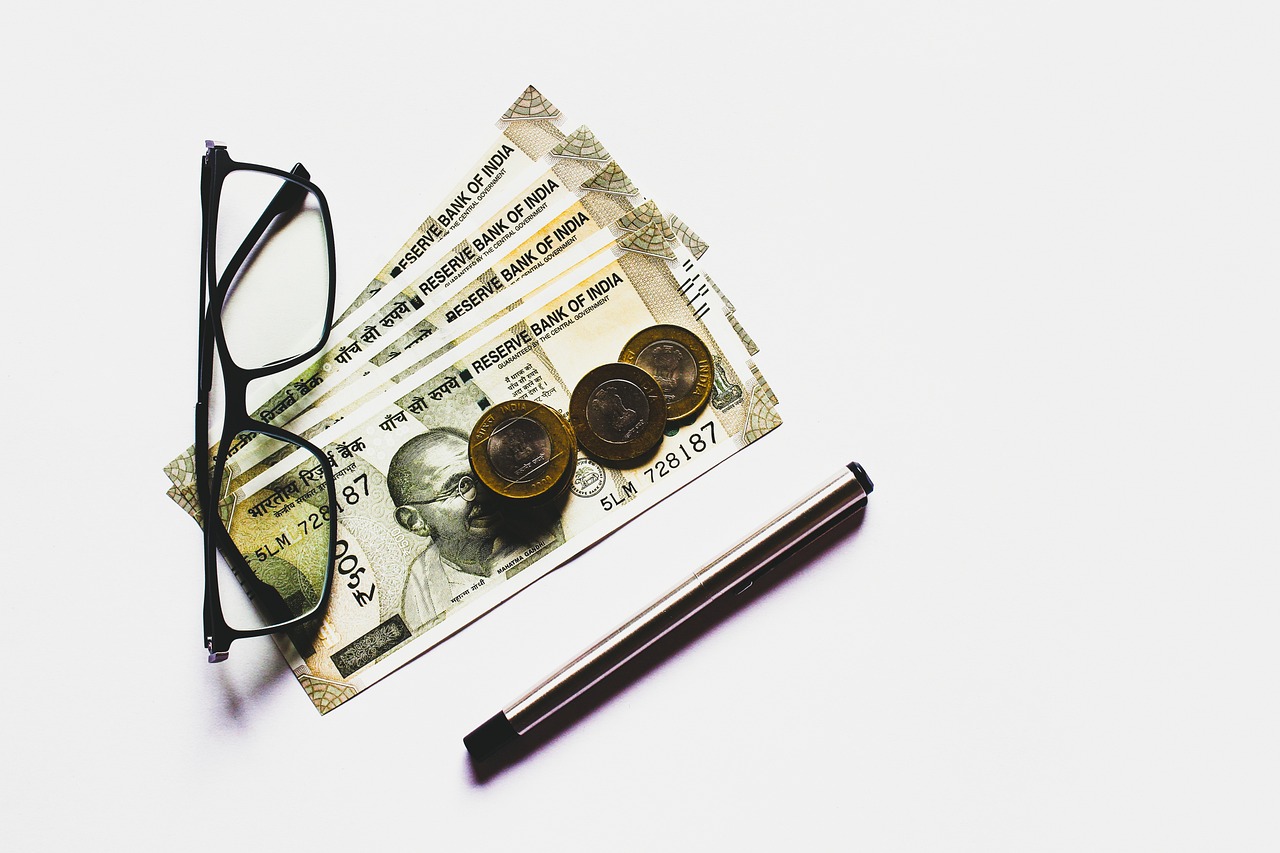Are you tired of spending a significant portion of your hard-earned money on bills every month? Well, we have good news for you! In this article, we will share some practical tips and strategies that can help you reduce your monthly expenses and save money.
Let’s start with your energy bills. By making a few simple changes, you can lower your electricity and heating costs. One effective way is to switch to energy-efficient appliances. These appliances not only consume less energy but also save you money in the long run. Additionally, consider installing low-flow fixtures in your home to significantly reduce your water consumption and lower your water bills.
To conserve water further, fix any leaks in your household and use water-saving devices like aerators and showerheads. These small changes can make a big difference in your water bills. When it comes to energy-saving habits, turn off lights and appliances when not in use, unplug electronics that are not in use, and adjust your thermostat to a comfortable yet energy-efficient temperature.
Now, let’s talk about internet and cable bills. To save money on these bills, it’s essential to compare different plans and providers. Take the time to research and find the best value for your money. Additionally, consider bundling your internet and cable services. Bundling can lead to significant savings and also simplify your bill payments.
In conclusion, reducing your monthly expenses is possible with the right strategies. By implementing energy-saving habits, using efficient appliances, conserving water, and being smart about your internet and cable bills, you can save a substantial amount of money. Stay tuned as we dive deeper into each of these topics and provide you with practical tips and advice to help you save money on your bills.
Energy Bills
Are you tired of seeing your energy bills skyrocket every month? It’s time to take control of your expenses and find ways to lower your energy bills. By implementing a few simple changes in your daily routine, you can save money on electricity and heating costs. Let’s explore some practical tips and strategies to help you reduce your energy bills.
First and foremost, consider investing in energy-efficient appliances. These appliances are designed to consume less electricity while still providing the same level of functionality. By replacing your old, energy-guzzling appliances with energy-efficient ones, you can significantly reduce your energy consumption and ultimately lower your bills. Additionally, using low-flow fixtures in your home can also contribute to energy savings. These fixtures are designed to minimize water usage without compromising on performance.
Another effective way to save on energy bills is by adopting energy-saving habits. Simple practices like turning off lights when not in use, unplugging electronics when they’re not being used, and adjusting your thermostat to energy-saving settings can make a noticeable difference in your monthly energy costs. It’s all about being mindful of your energy usage and making conscious choices to minimize waste.
Furthermore, it’s worth exploring renewable energy options such as solar panels. While the initial investment may seem high, solar panels can significantly reduce your reliance on traditional energy sources and lead to long-term savings. Additionally, consider insulating your home to prevent heat loss during the colder months. Proper insulation can help retain heat and reduce the need for excessive heating, ultimately lowering your energy bills.
By implementing these energy-saving strategies and making conscious choices, you can take control of your energy bills and save money on electricity and heating costs. Remember, small changes can add up to significant savings in the long run. So, why not start today and enjoy the benefits of a more energy-efficient and cost-effective lifestyle?
Water Bills
Are you tired of seeing your water bills skyrocket every month? Don’t worry, there are simple changes you can make in your daily routine to conserve water and save money. By implementing these strategies, you’ll not only reduce your environmental impact but also lower your water bills significantly.
One effective way to reduce water consumption is by installing low-flow fixtures in your home. These fixtures are designed to limit the amount of water used without compromising functionality. By replacing your old faucets, showerheads, and toilets with low-flow alternatives, you can save gallons of water every day. It’s a small investment that pays off in the long run.
Another important step is to fix any leaks in your plumbing system. Even a small leak can waste a significant amount of water over time. Regularly check for leaks and repair them promptly to avoid unnecessary water loss and costly bills.
Additionally, incorporating water-saving habits into your daily routine can make a big difference. Simple actions like turning off the faucet while brushing your teeth, taking shorter showers, and using a broom instead of a hose to clean outdoor areas can help conserve water and reduce your bills.
Remember, every drop counts. By being mindful of your water usage and making these simple changes, you’ll not only save money but also contribute to the conservation of this precious resource.
Efficient Appliances
Efficient Appliances
When it comes to saving money on your energy bills, one of the most effective strategies is to invest in energy-efficient appliances. These appliances are designed to consume less electricity while still providing the same level of performance. By using energy-efficient appliances, you can significantly reduce your energy consumption and ultimately save money in the long run.
The benefits of using energy-efficient appliances are numerous. Firstly, they consume less energy, which means lower electricity bills. By replacing your old appliances with energy-efficient ones, you can save up to 30% on your energy costs. Additionally, energy-efficient appliances are often equipped with advanced features and technologies that allow for better control and optimization of energy usage. This means that you can customize settings to maximize energy savings without sacrificing performance.
Furthermore, using energy-efficient appliances is not only beneficial for your wallet but also for the environment. These appliances produce fewer greenhouse gas emissions, helping to reduce your carbon footprint and contribute to a more sustainable future. By making the switch to energy-efficient appliances, you can play your part in conserving energy resources and protecting the planet.
Low-Flow Fixtures
Installing low-flow fixtures in your home can bring numerous advantages and help you significantly reduce your water consumption. These fixtures are designed to regulate the flow of water, ensuring that you use only the necessary amount for your daily activities. By replacing traditional faucets, showerheads, and toilets with low-flow alternatives, you can conserve water without compromising on functionality or comfort.
Low-flow fixtures work by incorporating aerators and restrictors that limit the amount of water flowing through them. This not only saves water but also reduces the energy required to heat it. According to studies, low-flow fixtures can reduce water usage by up to 50%, resulting in substantial savings on your water bills.
Additionally, these fixtures often come with adjustable settings, allowing you to customize the water flow according to your needs. For example, you can adjust the flow rate of your showerhead to enjoy a relaxing shower while using less water. This flexibility empowers you to make conscious choices about your water usage and contribute to water conservation efforts.
In summary, the installation of low-flow fixtures in your home can bring significant benefits, including reduced water consumption and lower water bills. By embracing these water-saving alternatives, you can play a part in conserving this precious resource while enjoying the same level of functionality and convenience.
Water Conservation Tips
When it comes to conserving water in your household, there are numerous practical tips that you can implement to make a significant difference. By following these simple strategies, you can not only reduce your water bills but also contribute to the preservation of this precious resource.
One effective way to conserve water is by fixing leaks in your home. Even a small leak can waste a significant amount of water over time. Regularly inspect your faucets, toilets, and pipes for any signs of leaks and promptly repair them. This simple action can help you save gallons of water each day.
Another water-saving technique is to install water-saving devices in your household. These devices, such as low-flow showerheads and faucet aerators, reduce the amount of water used without compromising the water pressure. By using these devices, you can enjoy the same level of comfort while significantly reducing your water consumption.
Additionally, practicing mindful water usage habits can make a difference. Turn off the faucet while brushing your teeth or washing dishes, and only run the dishwasher or washing machine when you have a full load. These small changes in your daily routine can add up to substantial water savings over time.
In summary, conserving water in your household is not only environmentally responsible but also beneficial for your finances. By fixing leaks, using water-saving devices, and adopting mindful water usage habits, you can make a positive impact and save money on your water bills.
Energy-Saving Habits
When it comes to reducing your monthly energy bills, adopting energy-saving habits can make a significant difference. By making a few simple changes to your daily routine, you can save both energy and money. Here are some effective habits and practices that can help you achieve just that:
- Turn off lights and appliances when not in use: It may seem like a small step, but switching off lights and unplugging electronics when you’re not using them can add up to substantial energy savings over time.
- Make the most of natural light: Instead of relying solely on artificial lighting during the day, open your curtains or blinds to let in natural light. This not only reduces your energy consumption but also creates a pleasant and inviting atmosphere in your home.
- Adjust your thermostat: Lowering your thermostat by just a few degrees in the winter and raising it in the summer can result in significant energy savings. Consider investing in a programmable thermostat to automatically adjust the temperature when you’re away from home.
- Use energy-efficient light bulbs: Replace traditional incandescent bulbs with energy-efficient LED or CFL bulbs. These bulbs not only last longer but also use significantly less energy, helping you save money on your electricity bills.
- Unplug vampire electronics: Many electronic devices continue to draw power even when they are turned off or in standby mode. Unplug these “vampire electronics” or use power strips with an on/off switch to completely cut off their power supply.
- Optimize your laundry routine: Wash your clothes in cold water whenever possible and hang them to dry instead of using a dryer. Additionally, make sure to run full loads in your washing machine and dishwasher to maximize their efficiency.
By incorporating these energy-saving habits into your daily life, you can not only reduce your carbon footprint but also enjoy noticeable savings on your monthly energy bills. Remember, every small step counts when it comes to saving energy and protecting the environment.
Internet and Cable Bills
When it comes to internet and cable bills, there are several strategies you can employ to negotiate better deals and ultimately save money on your monthly bills. By taking a proactive approach and being aware of your options, you can potentially lower your expenses without sacrificing the quality of your services.
One effective strategy is to compare internet and cable plans from different providers. By doing your research and understanding what each provider offers, you can ensure that you’re getting the best value for your money. Look for plans that match your needs and budget, and consider factors such as internet speed, channel selection, and customer service.
Another option to consider is bundling your internet and cable services. Many providers offer bundle packages that combine both services at a discounted rate. By bundling, you can enjoy the convenience of having both services from a single provider while also saving money on your monthly bills. However, it’s important to carefully review the terms and conditions of the bundle package to ensure that it aligns with your needs and preferences.
When it comes to negotiating with your internet and cable providers, don’t be afraid to ask for a better deal. Contact your provider and express your interest in reducing your bill. You can inquire about any current promotions or discounts that may be available, or even consider switching to a lower-priced plan. Remember, providers want to retain their customers, so they may be willing to work with you to find a solution that meets your needs and saves you money.
In conclusion, there are several strategies you can implement to negotiate better deals with your internet and cable providers and save money on your monthly bills. By comparing plans, considering bundle packages, and being proactive in your communication with providers, you can potentially lower your expenses without compromising on the quality of your services. Take the time to explore your options and don’t hesitate to reach out to your providers to discuss potential cost-saving measures.
Comparison Shopping
Comparison shopping is an essential strategy when it comes to saving money on your internet and cable bills. By taking the time to compare different plans and providers, you can ensure that you are getting the best value for your money. Here are some tips to help you with comparison shopping:
- Research different internet and cable providers in your area. Look for reviews and ratings to get an idea of the quality of service they offer.
- Compare the prices and packages offered by different providers. Look for any promotional offers or discounts that may be available.
- Consider the speed and data limits of the internet plans. Make sure the plan you choose meets your needs without overpaying for unnecessary features.
- Check for any additional fees or hidden charges that may be associated with the plans. These can significantly impact the overall cost.
- Take into account the customer service and support provided by the providers. Good customer service can make a big difference when you encounter any issues or need assistance.
By comparing different internet and cable plans, you can make an informed decision and choose the one that offers the best value for your money. Remember to consider your specific needs and budget when making your decision. Don’t be afraid to negotiate with the providers to get a better deal. With a little research and comparison shopping, you can save money on your monthly bills while still enjoying reliable internet and cable services.
Bundle Packages
Bundle packages are a great way to save money on your monthly internet and cable bills. By combining these services into one package, you can take advantage of special discounts and promotions offered by providers. Not only does bundling save you money, but it also simplifies your billing process by consolidating all your services into one convenient bill.
When you bundle internet and cable services, you can enjoy a range of benefits. Firstly, you can access faster internet speeds at a lower cost compared to subscribing to each service separately. This means you can stream movies, play online games, and browse the web without any lag or interruptions.
Additionally, bundling allows you to access a wider range of channels and programming options for your cable TV. You can enjoy your favorite shows, movies, and sports events without having to pay extra for premium channels.
Furthermore, bundling often comes with added perks such as free installation, equipment upgrades, and even discounted rates for additional services like home phone or security systems. These additional benefits can further enhance your savings and overall entertainment experience.
To explore bundle packages, start by comparing different providers and their offerings. Look for packages that best suit your needs in terms of internet speed, channel selection, and pricing. Consider the length of the contract and any potential early termination fees as well.
Remember, bundling is not only about saving money but also about convenience and flexibility. It allows you to manage your services more efficiently and enjoy a seamless entertainment experience. So, take advantage of bundle packages and start enjoying significant savings on your monthly bills.
Frequently Asked Questions
- Q: How can I reduce my energy bills?
A: There are several ways to lower your energy bills. One effective strategy is to use energy-efficient appliances, which consume less electricity. Additionally, implementing energy-saving habits such as turning off lights when not in use and adjusting your thermostat can make a significant difference.
- Q: What are low-flow fixtures?
A: Low-flow fixtures are plumbing fixtures designed to minimize water usage. They include low-flow showerheads, faucets, and toilets that use less water without compromising performance. By installing these fixtures in your home, you can significantly reduce your water consumption and save money on your water bills.
- Q: How can I conserve water in my household?
A: There are various ways to conserve water in your household. Start by fixing any leaks promptly, as even small drips can add up to significant water waste. Additionally, using water-saving devices such as aerators on faucets and collecting rainwater for watering plants can help reduce your water usage.
- Q: How can I negotiate better deals with my internet and cable providers?
A: To negotiate better deals, start by researching and comparing different plans from various providers. Armed with this information, contact your current provider and inquire about any promotions or discounts they may offer. If they are unwilling to negotiate, consider switching to a competitor who offers a more favorable deal.
- Q: What are the benefits of bundling internet and cable services?
A: Bundling internet and cable services can lead to significant savings on your monthly bills. Providers often offer discounted rates for combined services, making it a cost-effective option. Additionally, bundling simplifies your billing and customer service experience, as you only have to deal with one provider for both services.






